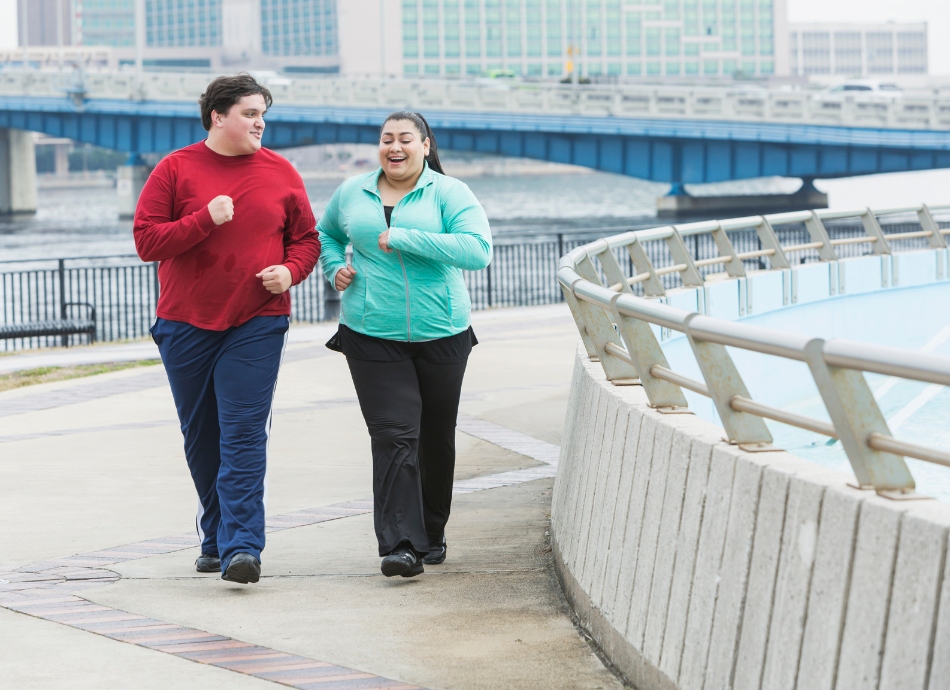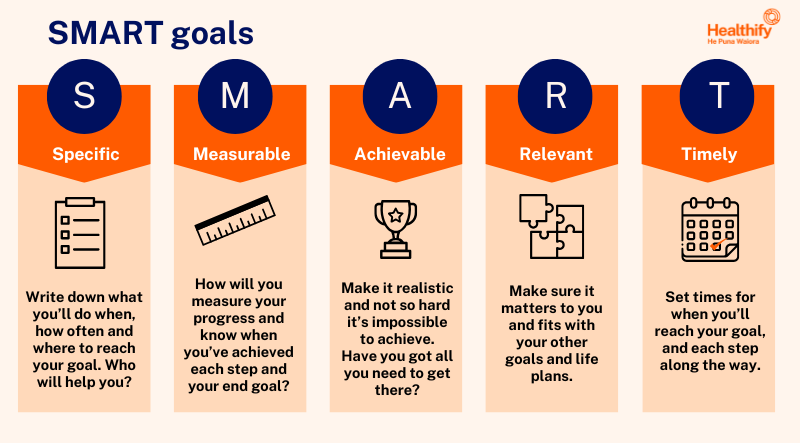If you're a frequent visitor to Healthify, why not share our site with a friend? Don't forget you can also browse Healthify without using your phone data.
Fitness – how to start exercising if you’re out of shape
How to become more physically active
Key points about getting more physically active
- Starting exercise or the thought of being physically active might seem too difficult. You might have questions about what you should be doing and how to stay motivated.
- However, being physically active has many benefits for your physical and mental health.
- Exercising doesn't need to cost a lot and can be done at home.
- Read on to find out how to get going and what can help you on your journey of becoming more physically active.

Starting an exercise programme can seem a bit overwhelming, especially if you’re out of shape or haven’t exercised for a while.
You may be asking yourself lots of questions like:
- What exercise should I do?
- How long for?
- When should I do it?
- Will I embarrass myself?
- How do I stay motivated?
There are many benefits of regular exercise.
Regular physical activity has been shown to reduce the risk of several health conditions including heart disease and stroke, some cancers, type 2 diabetes, obesity, high blood pressure, osteoarthritis, osteoporosis, depression and anxiety.
The other great thing about exercise is you don’t have to spend a lot of money to do it – in fact it’s often completely free and can be done in the comfort of your own home, alone or with friends and whānau.

Image credit: Canva
Make the decision
Sometimes making the decision to start a particular action can be the most difficult task. You may like to think of a physical activity that you enjoyed in the past or want to try out, such as walking or dancing, and decide to make that your starting point. Read about the benefits of walking.
Get a health check if you have any concerns or questions
Once you’ve made the decision, then it’s a good idea to have a health check with your healthcare provider, especially if you’re older and/or if you have any ongoing health conditions. You may want to ask your healthcare provider if there's a health coach you could talk to for support to get started on your journey, or talk about getting a green prescription referral.
Set some goals
Whether your goal is to take the stairs instead of the lift each day at work, or to complete a triathlon, set some goals so you have something to work towards. Write your goals down to make them more concrete. Make each goal specific so you know exactly what you're going to do and how you'll know when you've achieved it. Be realistic about what's achievable for you in a set timeframe. It's important that your goal matters to you – it's hard to stay motivated if you're trying to do something you don't really care about, or something somebody else has in mind for you. Read more about goal setting and making changes.

Image credit: Healthify He Puna Waiora
Find something you enjoy
Pick a form of exercise you enjoy. Whether it’s walking, swimming, cycling, dancing or playing a sport, if it’s something you enjoy it will make it easier to stay motivated and create healthy habits. Have a look at some simple exercise videos to help you get started. You might like to use a free outdoor gym in a park. Find out where outdoor gyms are located in Aotearoa New Zealand(external link).
Incorporate activity into your day
Try adding movement into your everyday life. For example, get off the bus a stop or two earlier or park your car further away. Take the stairs rather than the lift.
It’s recommended that adults do at least 2.5 hours of moderate physical activity spread throughout the week. You should include muscle strengthening exercises at least 2 days a week. Extra health benefits can be gained from doing 5 hours of moderate, or 2.5 hours of vigorous activity a week. But you need to build up slowly. Read more about how to add physical activity into your daily routine.
Start low and go slow
When getting into an exercise routine, make sure you start off gently and do something low impact so you don’t injure yourself or overdo it. Then you can gradually build up and do more. You could start by doing your choice of physical activity a few times a week for as little as 5 to 10 minutes, or even break it down, eg, 10 minutes of walking after breakfast, lunch and dinner.
Warm up and down
Warming up properly before you exercise is key to preventing injuries, especially if it’s been a while since you’ve been active. It’s just as important to warm down properly as well.
Stay hydrated
Remember to drink lots of water and stay hydrated. Especially if you're exercising in the heat.
Listen to your body
Listen to your body when you exercise. If you feel like what you’re doing is too much, then slow down or have a rest. This is especially important in the early days when you’re getting back into exercise and may have little or no fitness. It’s amazing how quickly you can gradually build up your fitness, so don’t give up.
Eat a balanced diet
Along with regular exercise, eating a healthy, balanced diet is key to good health. Eating well will also give you more energy to exercise!
If you have any questions or concerns about starting an exercise programme or your overall health, please contact your healthcare provider.
Physical activity(external link) Heart Foundation, NZ
Green prescriptions(external link) Health New Zealand | Te Whatu Ora, NZ
Outdoor gyms New Zealand(external link)
Apps
References
- Health check – how to start exercising if you’re out of shape(external link) The Conversation, 2019
- Physical activity(external link) Health New Zealand | Te Whatu Ora, NZ
Credits: Healthify editorial team. Healthify is brought to you by Health Navigator Charitable Trust.
Reviewed by: Roselyn Singh, Health Coach, Auckland
Last reviewed:





